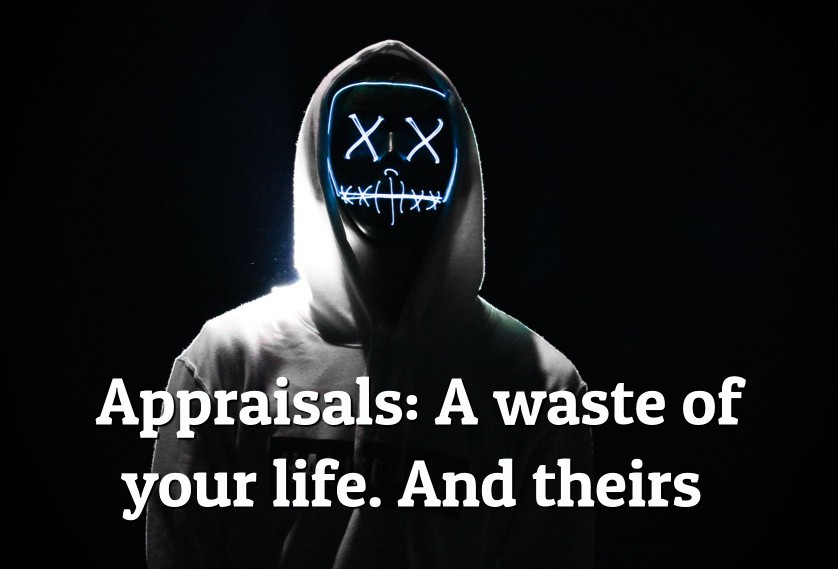If you're one of the rare business owners or managers who genuinely enjoys doing formal appraisals with your team, then don't read this article. You will disagree with everything I have to say
For everyone else, here's a bold claim: Most of us flipping hate formal appraisals.
In fact, isn't that one of the many reasons we continually put up with the hell of being a business owner? Because we have 100% control, we can choose never to be appraised, or have to perform an appraisal ever again.
Appraisals are not really a relevant tool for an MSP the size of yours, anyway. They're a tool for big businesses with hundreds; thousands of employees. And they allow the people at the top to have some perceived level of control over the people at the bottom.
A small business like yours is different.
Yet, you have the same problem: Your team don't do everything you'd like them to do, in the way you'd like them to do it.

There are lots of reasons why this happens:
- Everyone's too busy
- Training is a nice idea, but, er, everyone's too busy
- Your team can't do what you do. And don't think like you do. Oh, and they're also too busy
------> But actually, one of the biggest reasons is that you don't tell them what you'd like them to do. And you don't tell them how you'd like them to do it <------
Come on. Deep down, you know this is true.
But don't worry, it's perfectly normal. We do this, because we assume that other people know what we know. When of course they don't.
Luckily there is a way to tackle all of these problems, one little piece at a time And it's certainly not an appraisal
The answer is to spend a small amount of time every month, doing some 121s with your team.
This is not a formal process. There's no prep or paperwork.
It's sitting down, away from the business, for about 15 to 20 minutes, And having a two way chat.
But there is a very clear structure to it. Because you ask them 3 key questions:
- Since we last met, what’s gone well?
- What hasn’t gone so well?
- What should you do differently next time?
These questions set a framework that allow both you and the person you're meeting, to talk about the things that really matter. For them it will be problems and issues. For you it will be performance and efficiency.
121 meetings are not a quick fix. They are a long-term investment in improving performance and net profit.
You get to tackle all the things that annoy you in small chunks.
And they get the valuable guidance and feedback that they crave from their boss/parent (you are your staff's Mummy or Daddy, whether you like it or not).
Good staff get better. Bad staff get fixed or fired. Boom.






